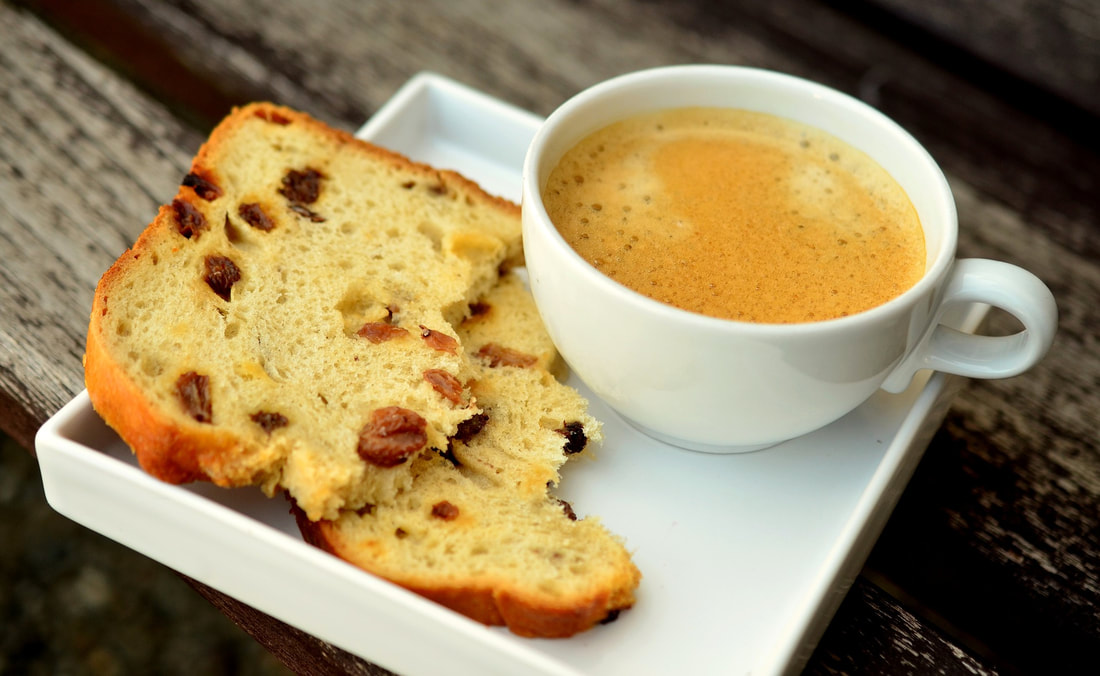|
If you like to order a doughnut with your morning coffee, Cornell researchers would advise you to think twice before you make that decision. A new study published by the Cornell Department of Food Science has identified a link between consumption of coffee and sweet-taste perception.
Also read, Health Canada is advising Canadians about safe levels of caffeine consumption. Prof. Robin Dando, food science, collaborated with Ezen Choo, Ph.D. ’17, and Benjamin Picket ’18 to publish the study in August. The study, completed at the Cornell Sensory Evaluation Center, tested how the perceived amount of caffeine influences consumption of a certain product. Consistent with their hypothesis, they found a connection between caffeine and the type of food that is chosen after consuming caffeine. “The caffeine, we believe, is causing sweet-taste perception to decrease, so when you are not able to taste the sweetness as well, that may drive one to crave sweets or want to eat a cookie or donut with their coffee,” Choo said. This project was inspired as a follow-up from Dando’s Ph.D. research in which he studied adenosine receptors in mice and the way their taste was affected. Dando could not be reached for comment about his research. “[Dando] found that adenosine receptors in mice were really important in sweet taste and sweet perception, and that caffeine is an adenosine blocker,” Picket said, describing some results of Dando’s research. The study took a little under a year to complete from start to finish. The group came together through the taste physiology lab where Dando taught, Choo was the teaching assistant and Pickett was a student, Choo said. In the study, they tested different types of caffeine on two focus groups, who did not know which type they received. Choo said on one day subjects received non-caffeinated coffee with an added chemical quinine to maintain the same level of bitterness as caffeinated coffee, which they received on the other day. The results about perceived sweet taste were consistent with their hypothesis. “The people who drank the coffee sample with caffeine perceived it to be less sweet and they also perceived the sweet solutions we gave them following the sample to be less sweet,” Picket said. Beyond the link between caffeine consumption and sugar cravings, the team also asked the subjects how alert they felt, and got unexpected results. “Surprisingly on both days they felt alert whether or not they had the caffeinated or non-caffeinated samples,” Choo said. “Originally we thought that people who had the caffeine would definitely know based on how they felt.” Choo, an author of the study, graduated in 2017 with a Ph.D. in Pharmacology. Although her main work was with the Veterinarian School, Choo was able to use her background working in labs with rodents to this lab that involved human subjects. “This was a really cool study that linked evidence I have seen in rodent studies and being able to put that in a human sensory study and see some more results,” Choo said. Choo stressed the value of the use of coffee in the study, as opposed to another pharmaceutical form of caffeine. In this way, she said it could have greater impact with coffee being part of daily life for so many people. “[Using coffee] provides a more real world perspective and has applications to our daily lives,” Choo said. “Caffeine is one of the most widely consumed psychoactive drugs." Picket is in the College Scholar program in the College of Arts and Sciences studying the perception of taste, a combination of biology, psychology and food science. He said he has worked in many restaurants in the past and has noticed applications this study has to the hospitality industry. “In this particular study we had, we showed [that] coffee with caffeine can actually reduce your perception of sweet taste. I think this study has important implications for any restaurant or any business that is trying to understand the point of view of the customer,” Picket said. Overall there is certainly more research to be done on the effects of caffeine consumption among humans, particularly sleep-deprived college students. But for now, Cornell research is encouraging people to give a second thought to why they are grabbing a cookie with their next cup of coffee. SOURCE Amina Kilpatrick, The Cornell Daily Sun
1 Comment
12/15/2017 06:03:45 pm
We all drink coffee and it is a drink that is always present when we are eating our breakfast. A perfect substitute for milk and chocolate drink. I want to thank the person who post this blog because it really helped me to see the unseen reality of drinking a coffee. I will now be conscious about drinking coffee. I will also be listing the foods that will be included in my diet. People will always be a hunger for knowledge. It is nice to know such things like this one.
Reply
Leave a Reply. |
Advertisement
News & Updates
Stay informed with the latest news around foodservice, agriculture and other related food news. Advertisement Opportunities
|


 RSS Feed
RSS Feed


